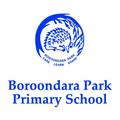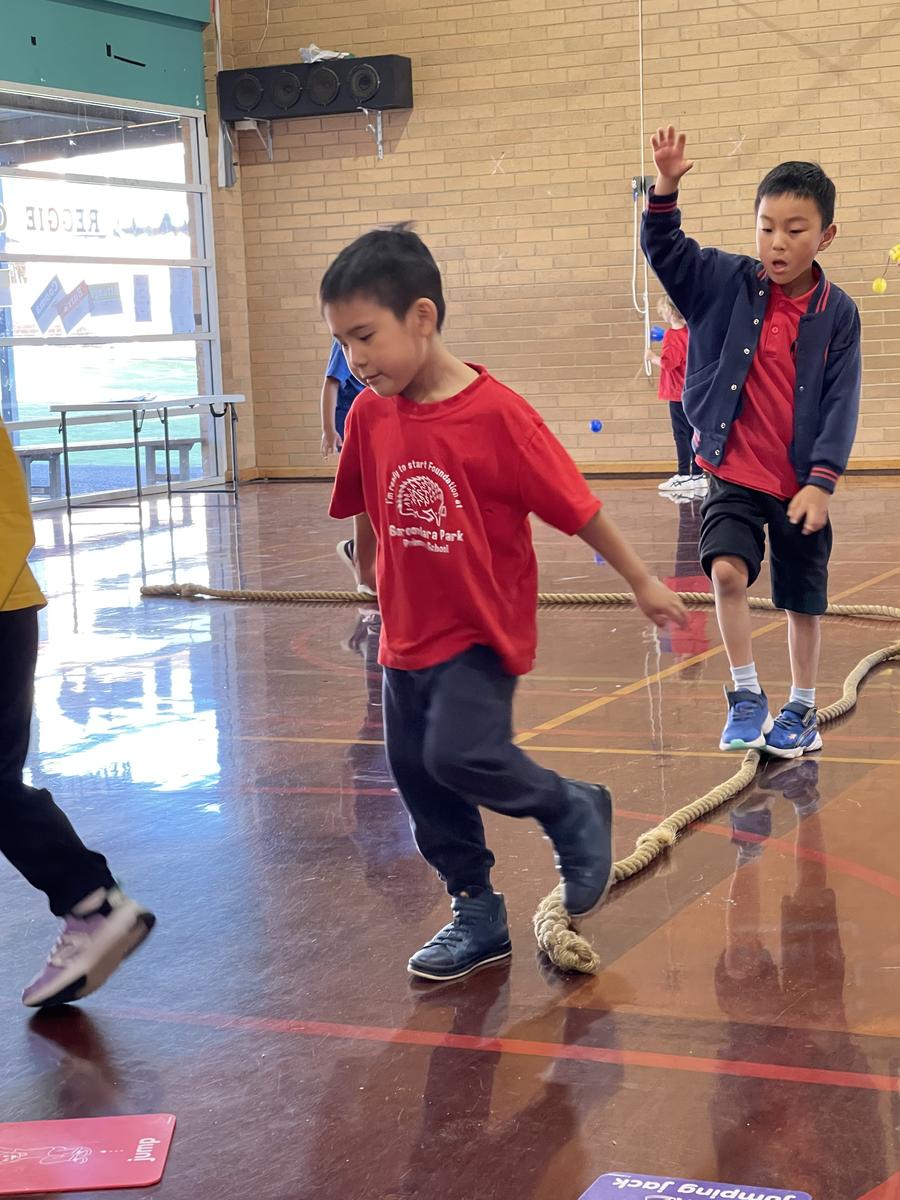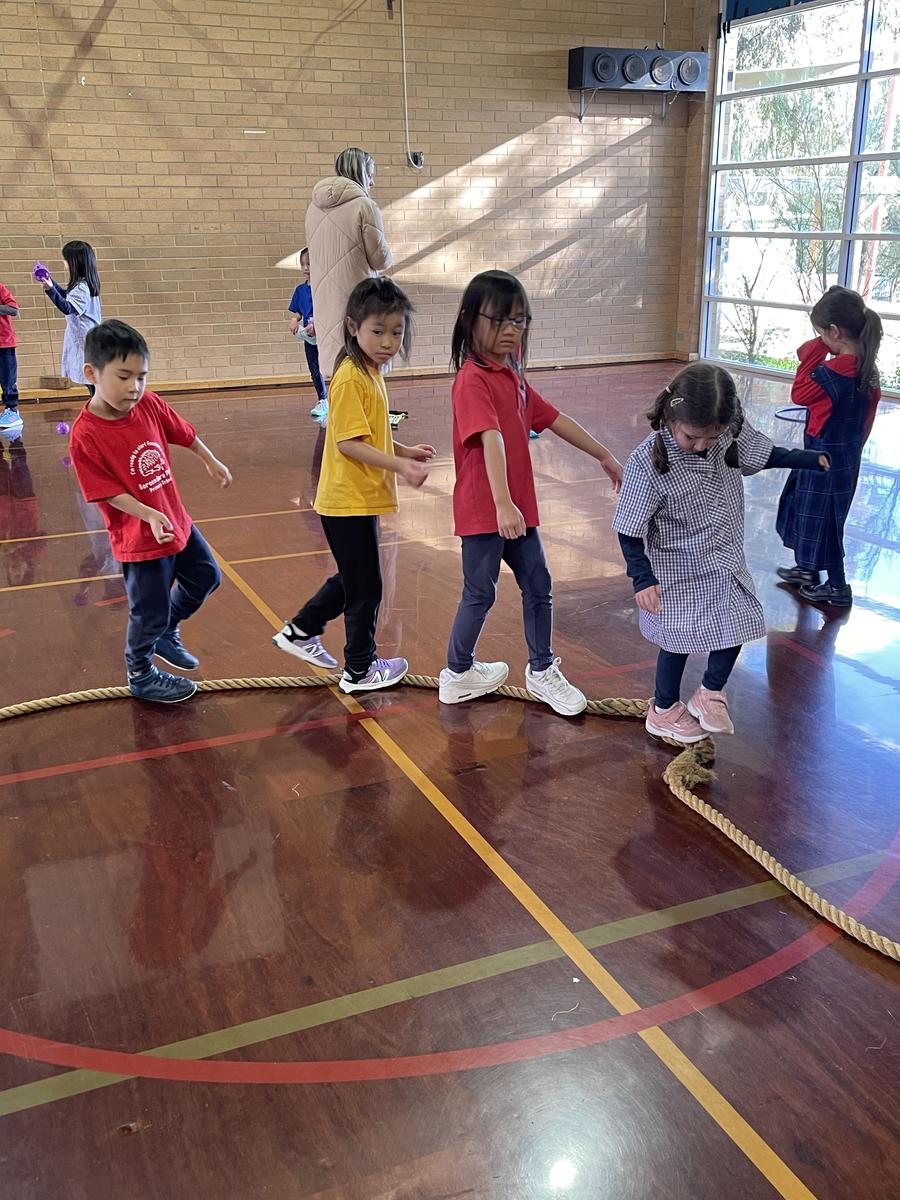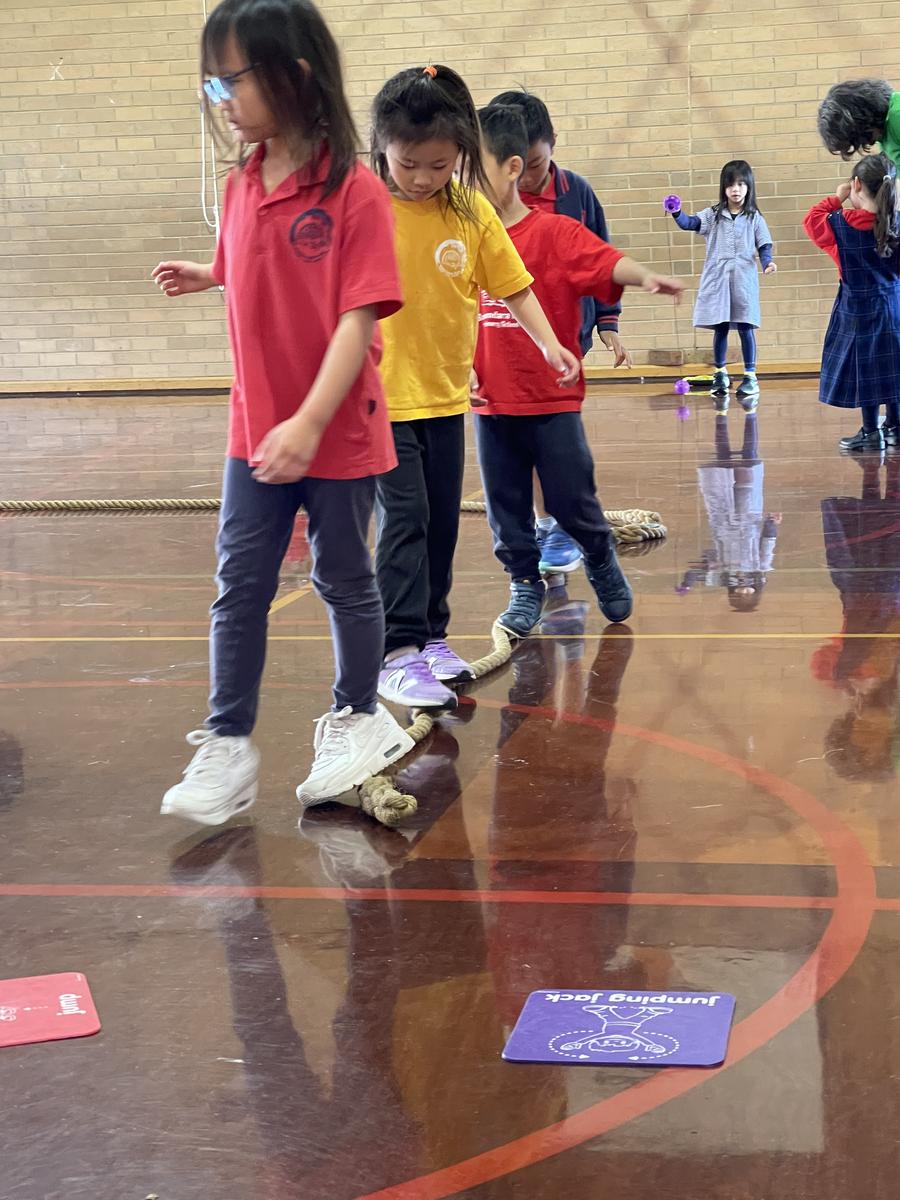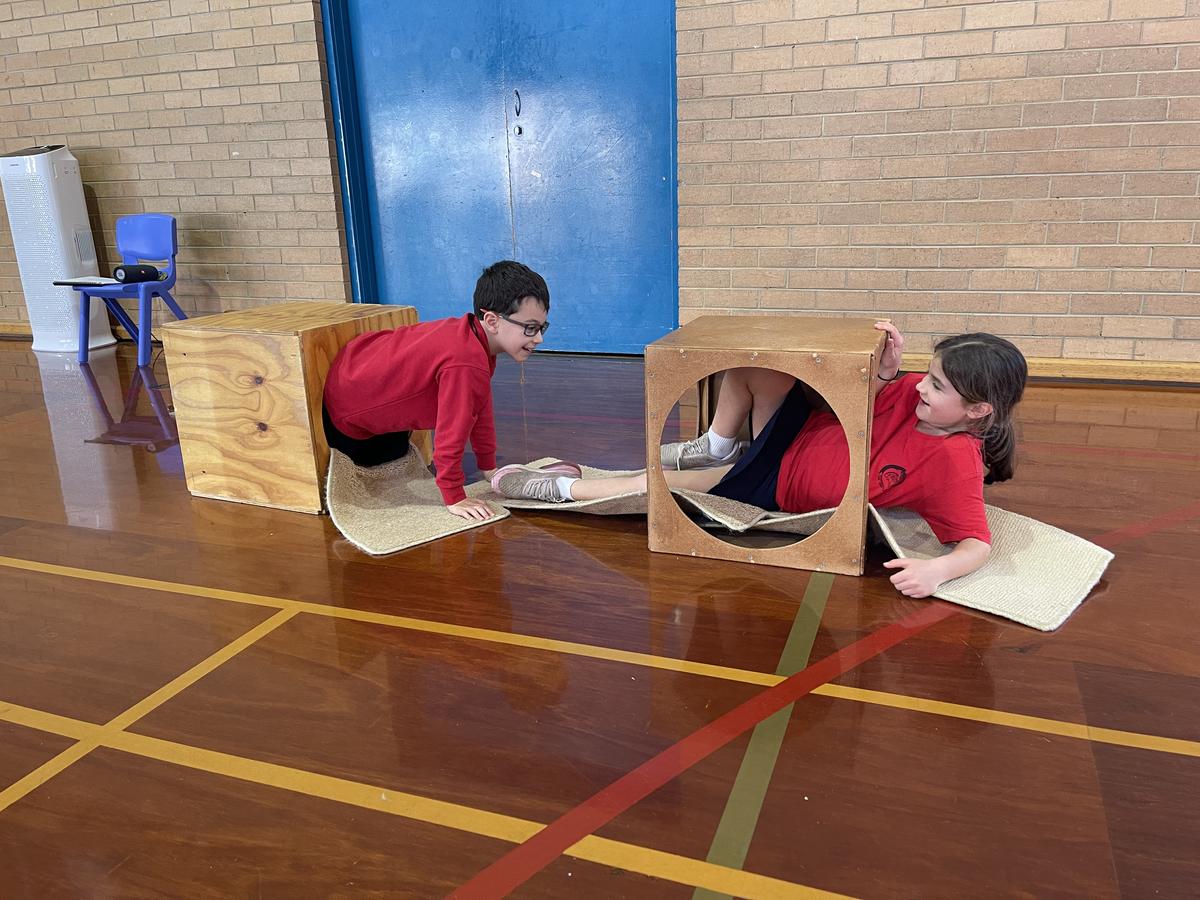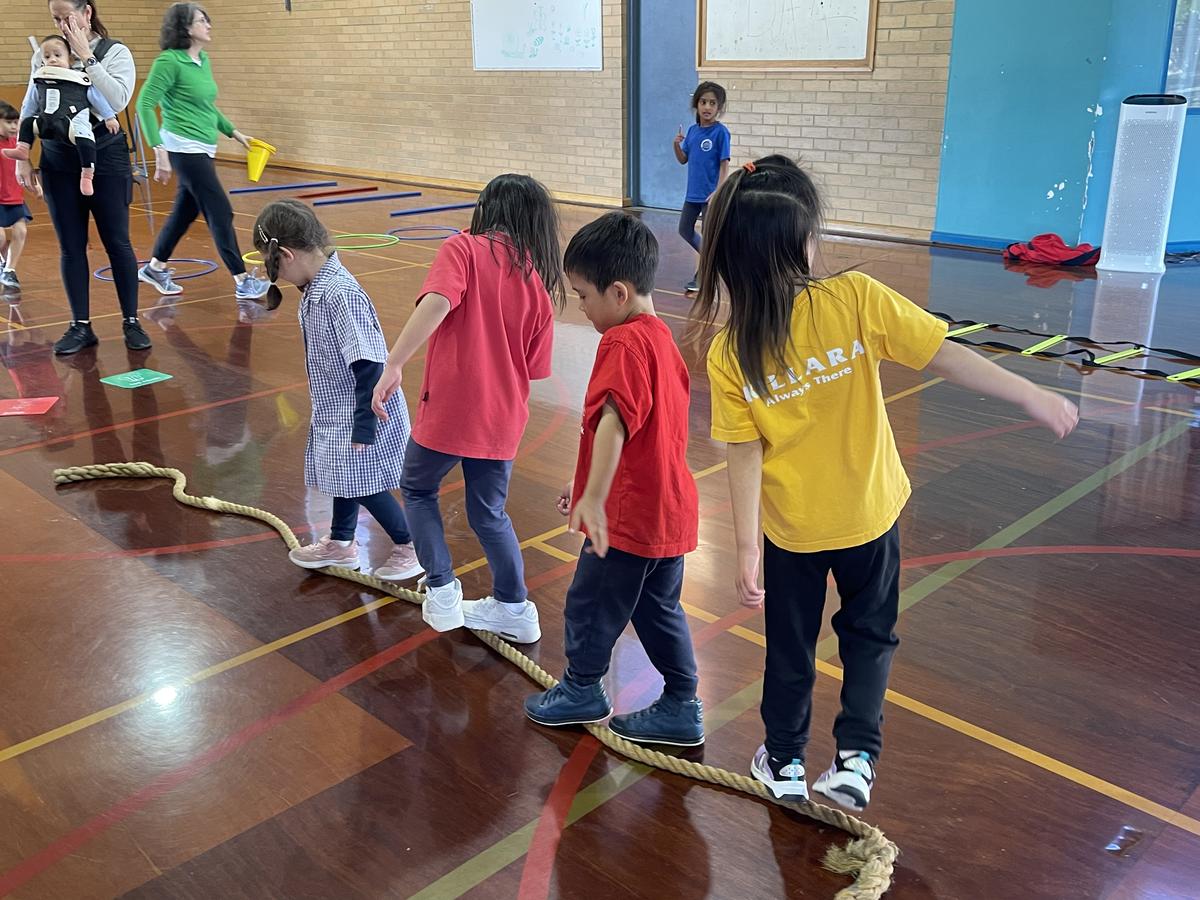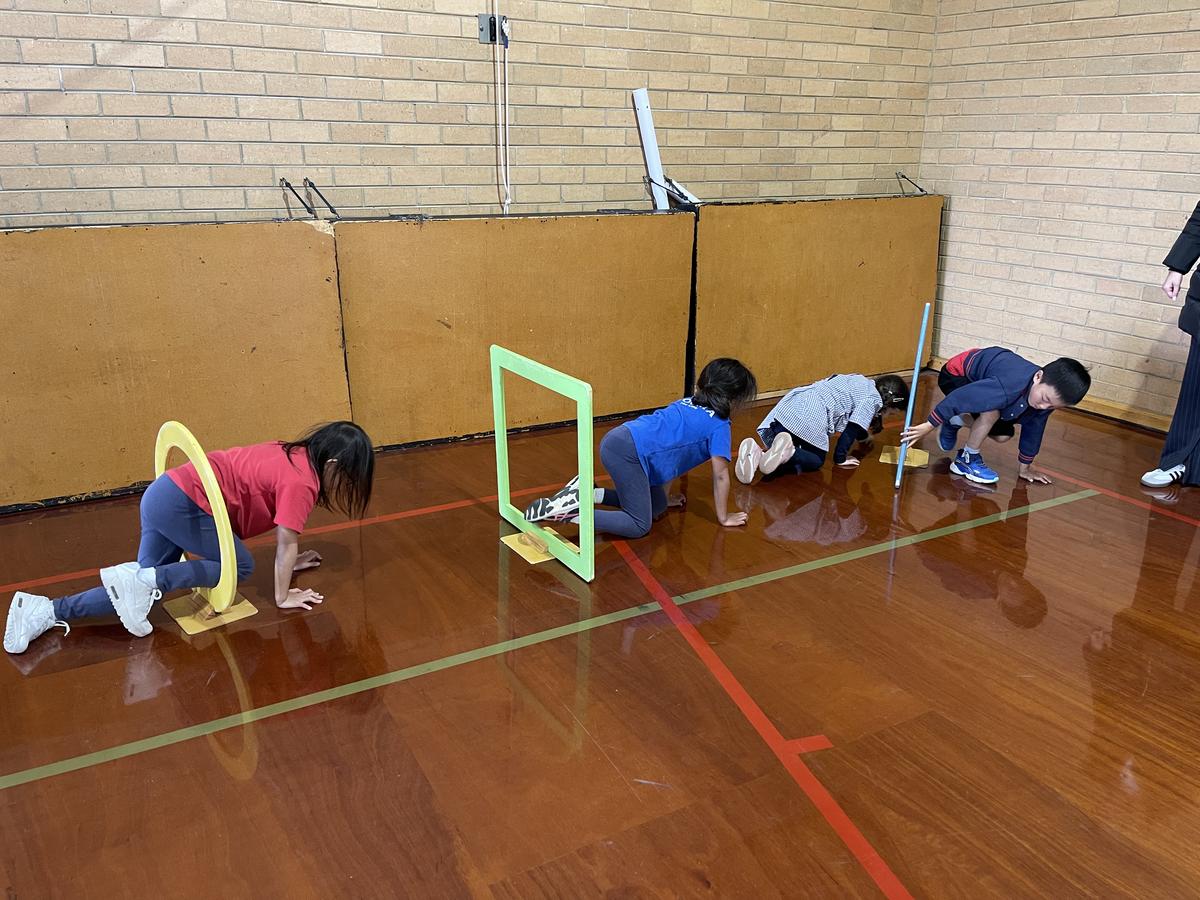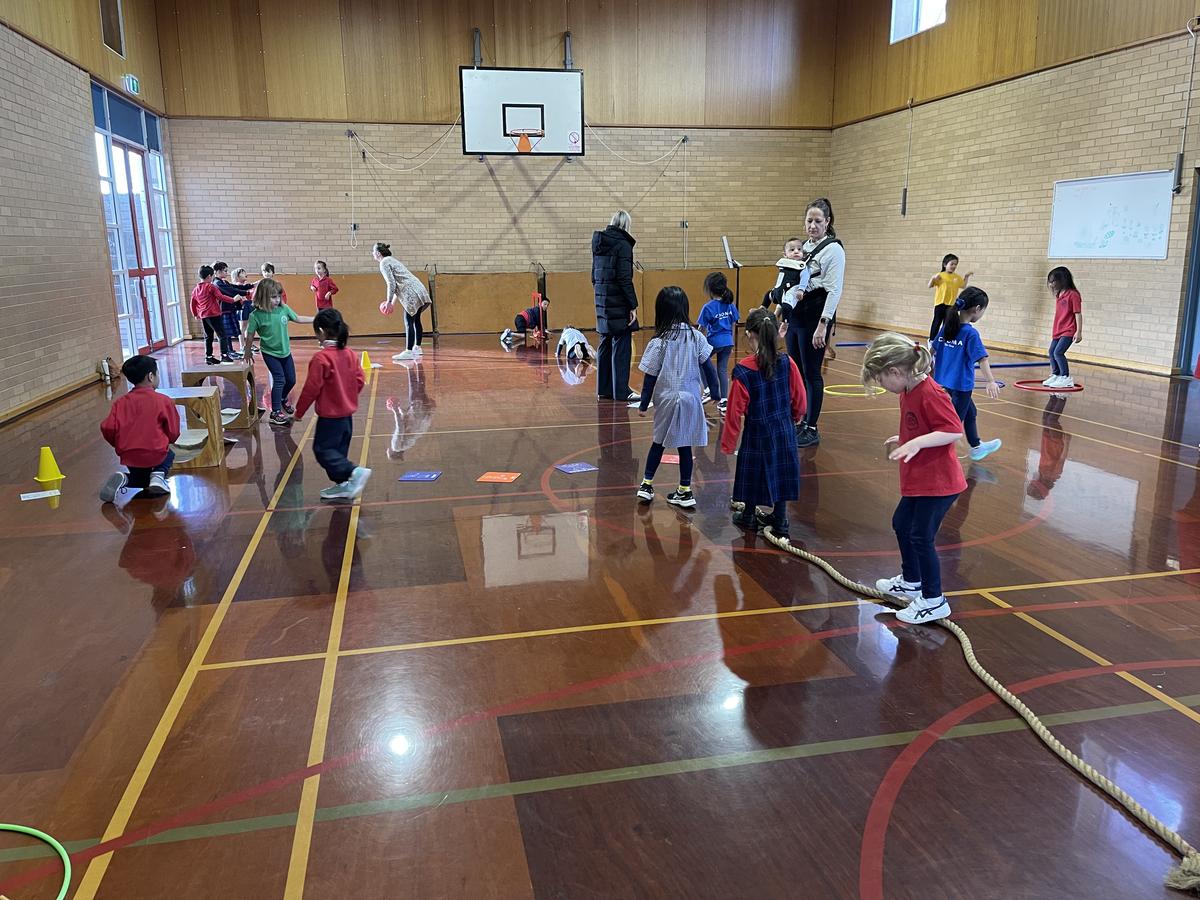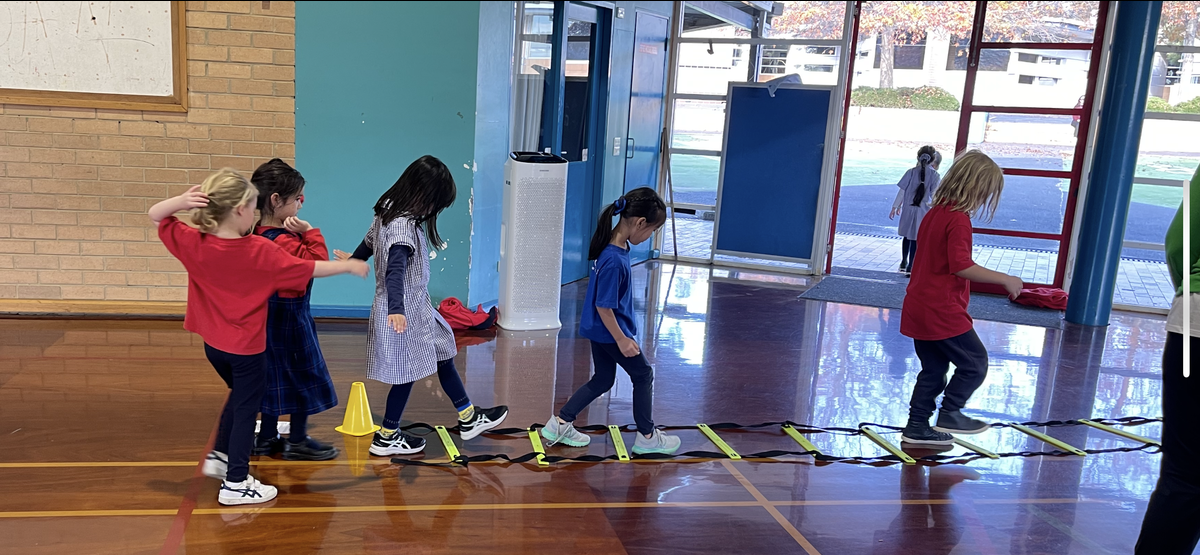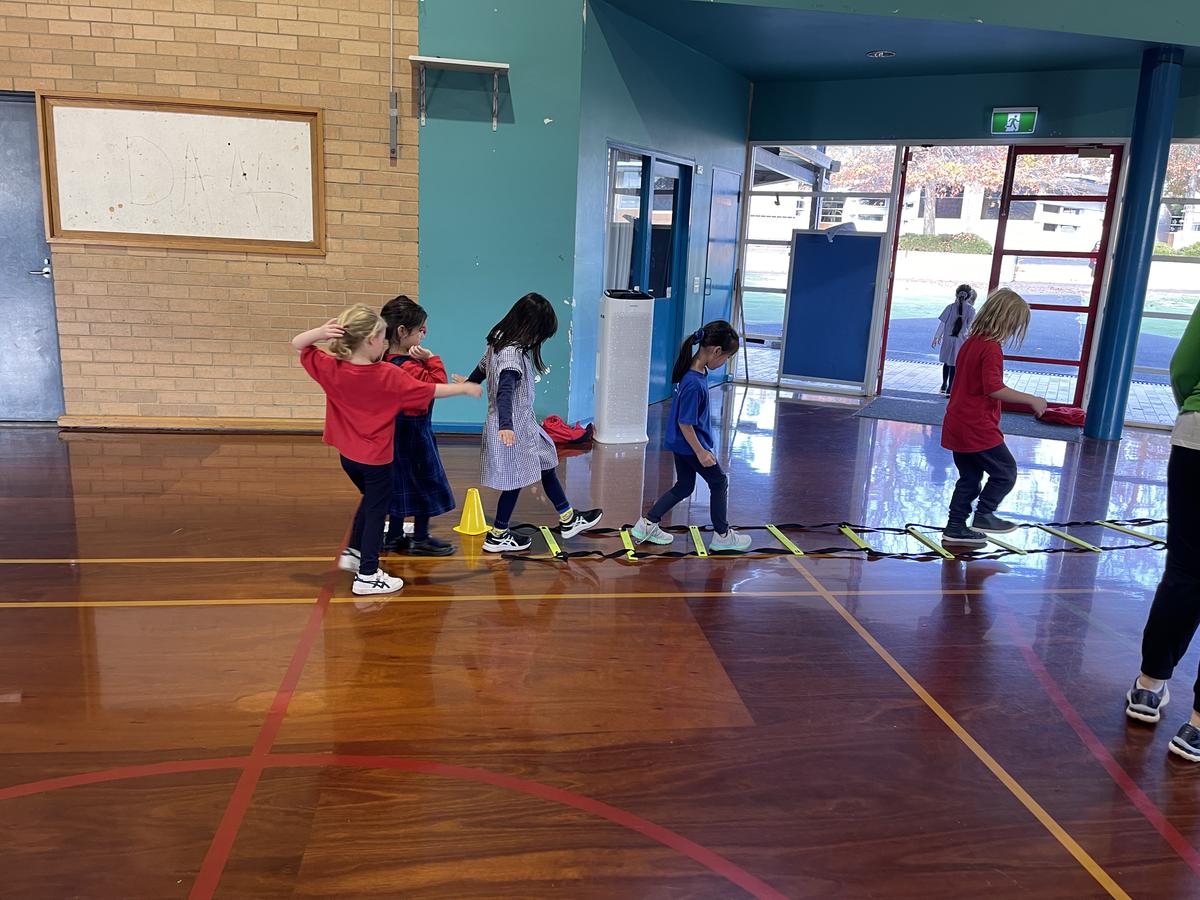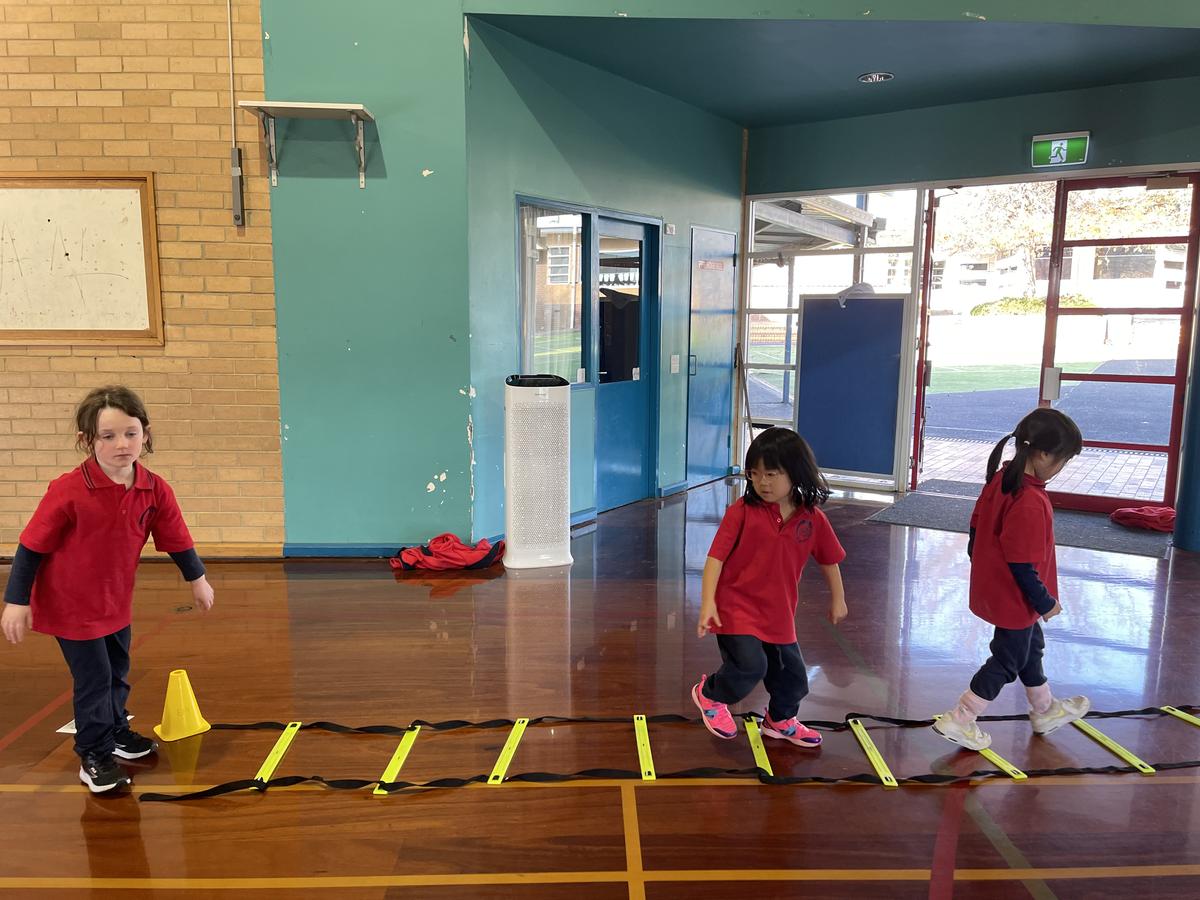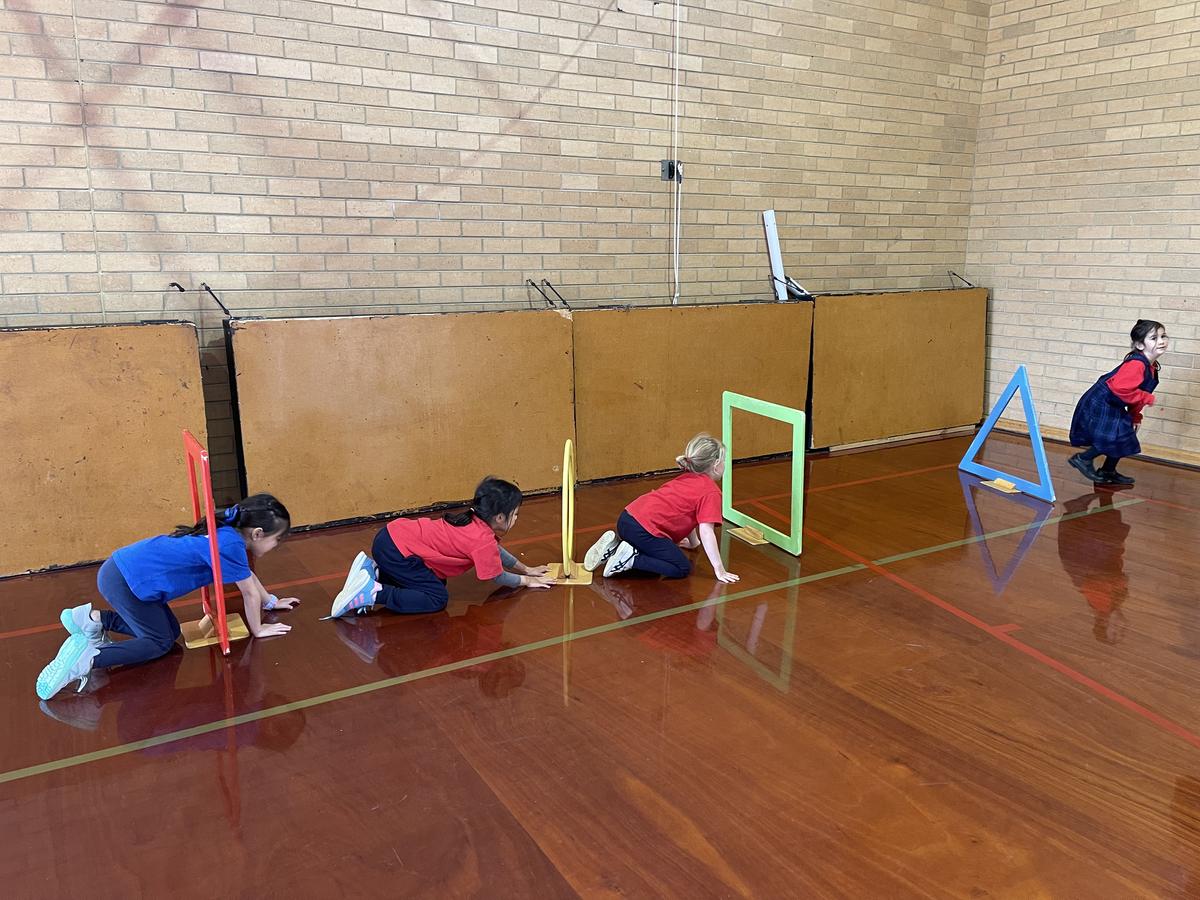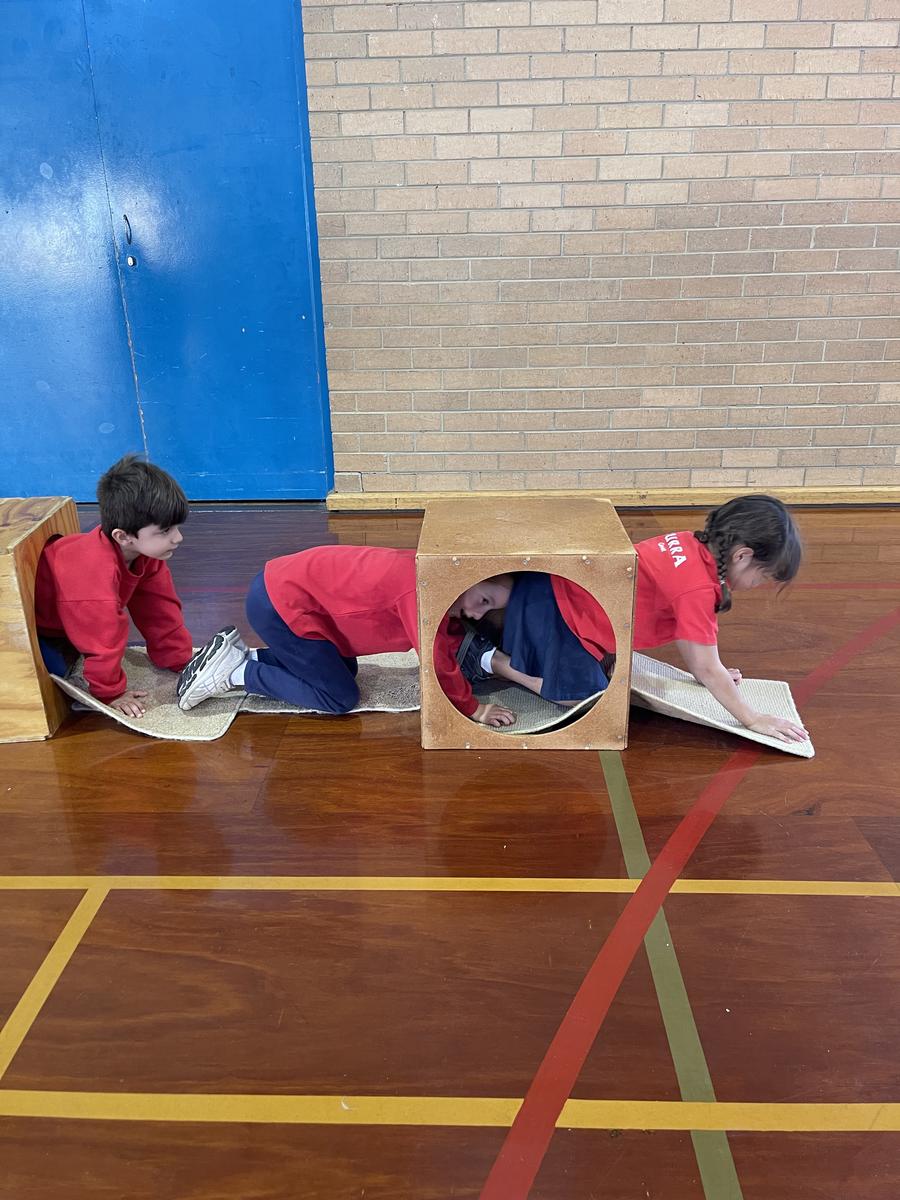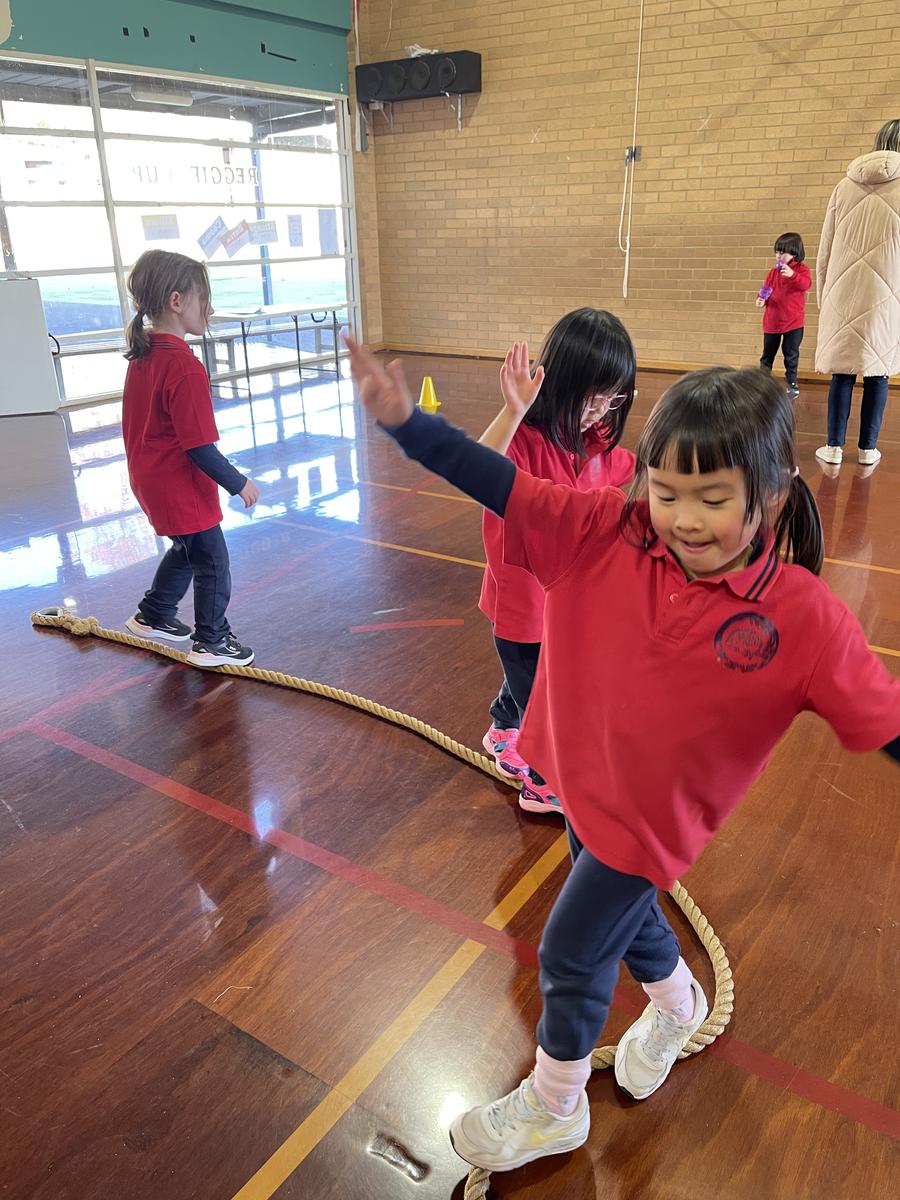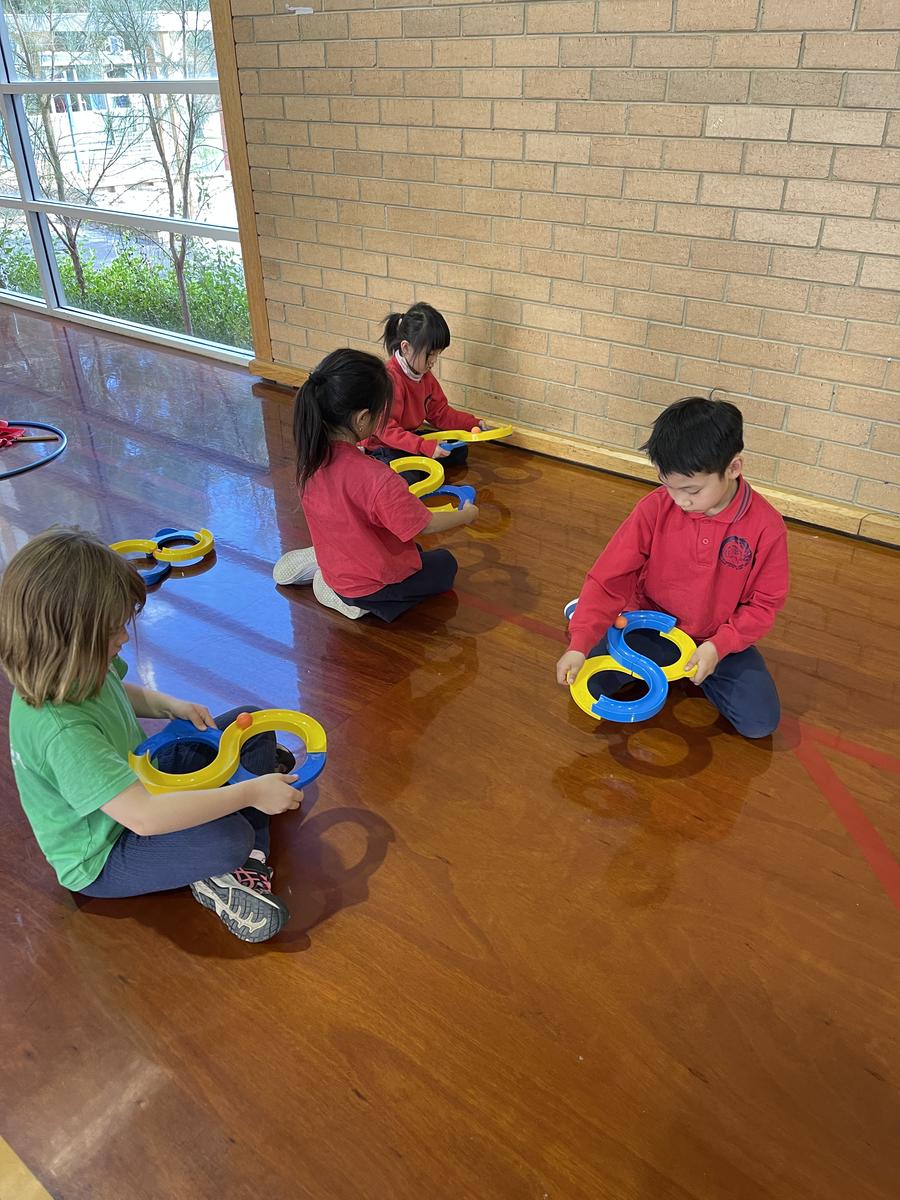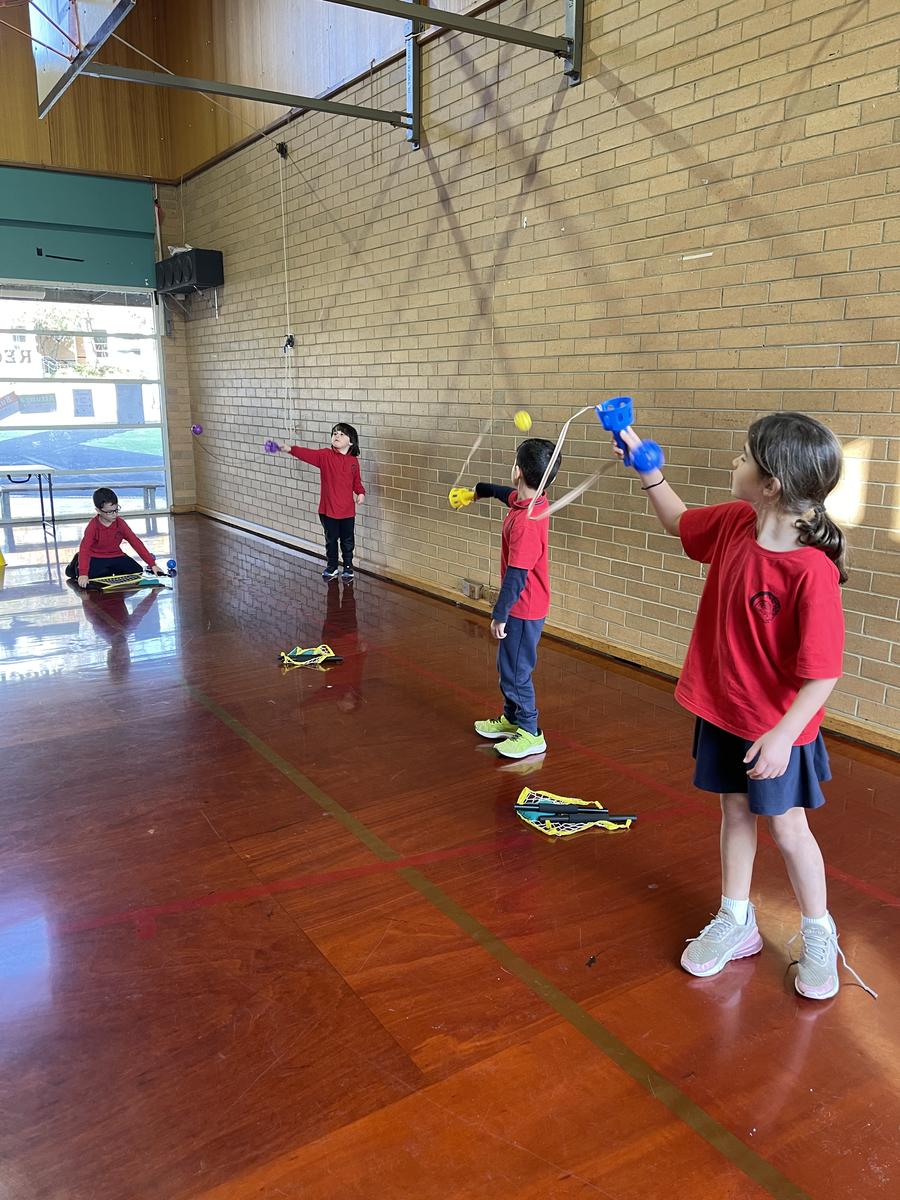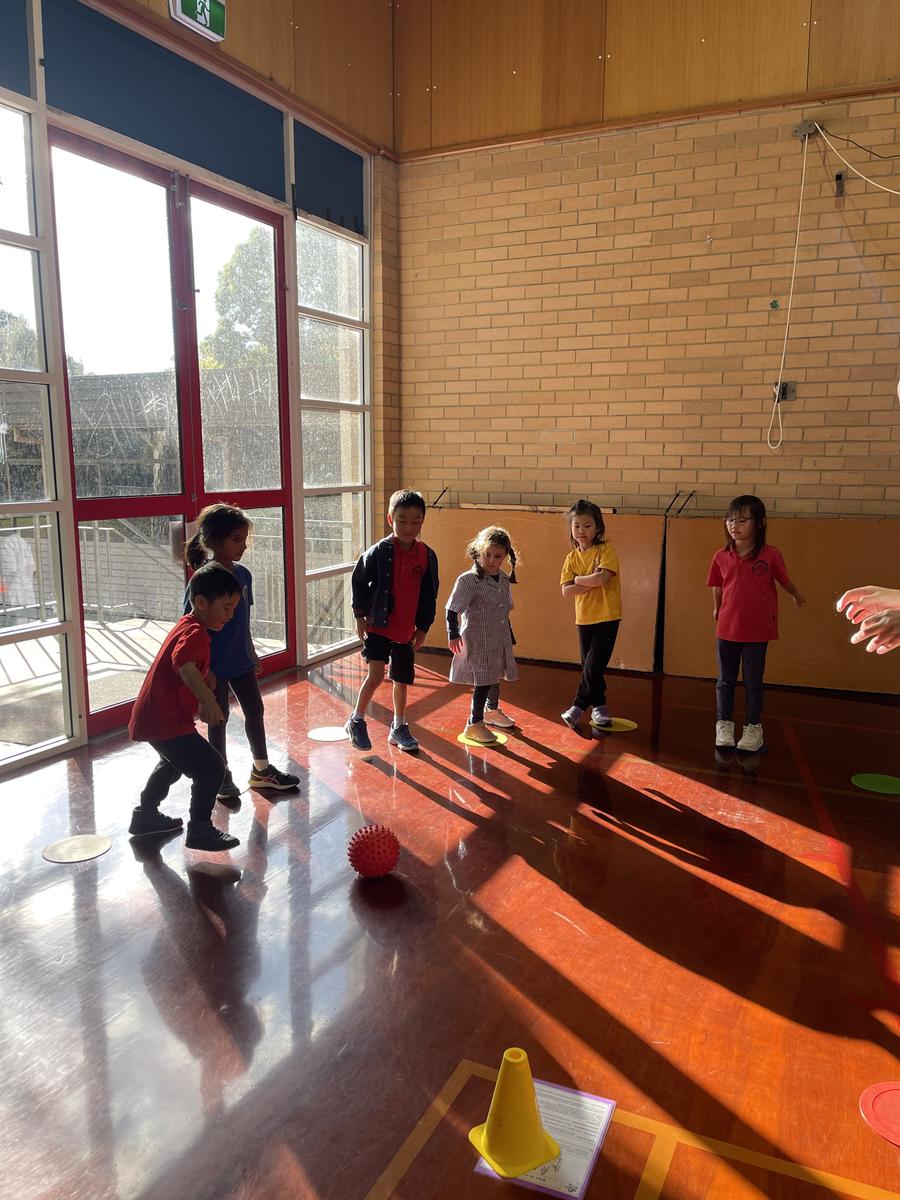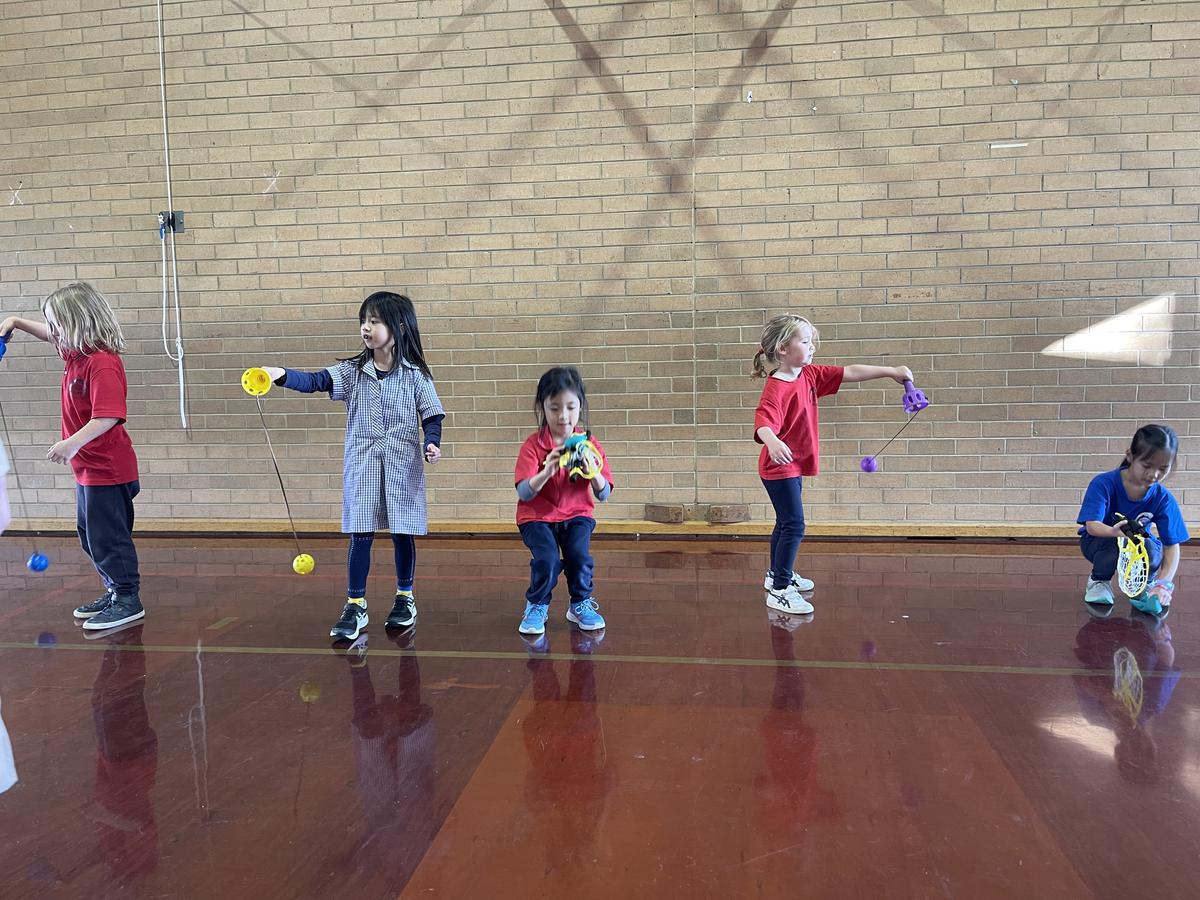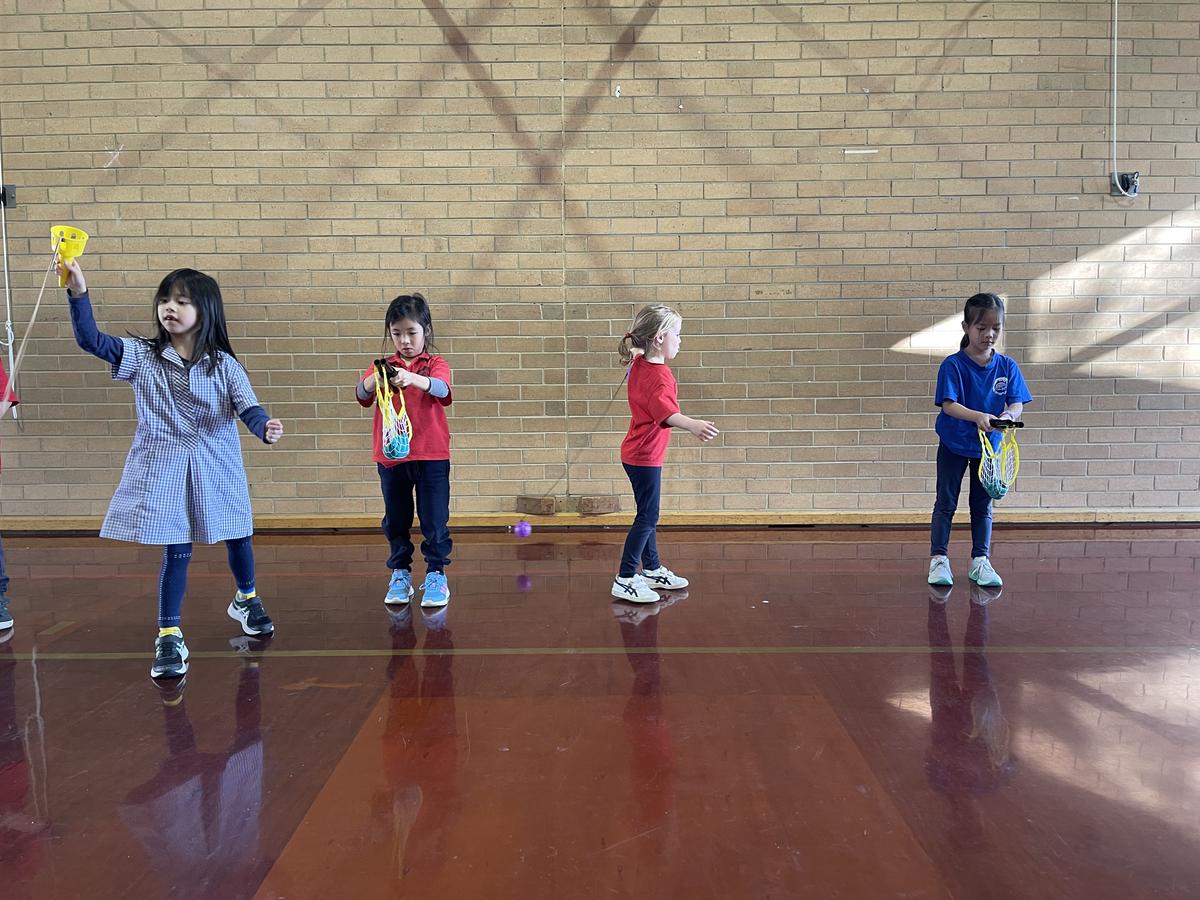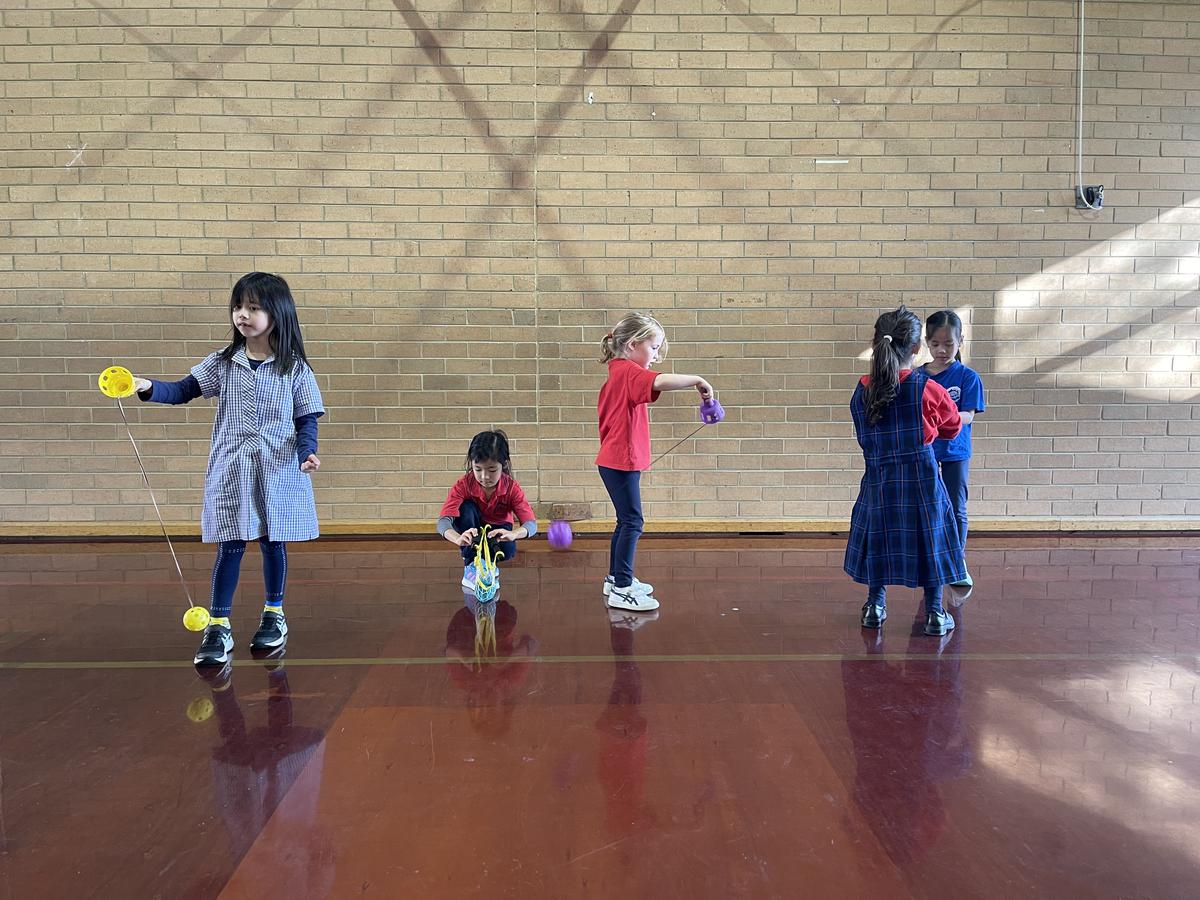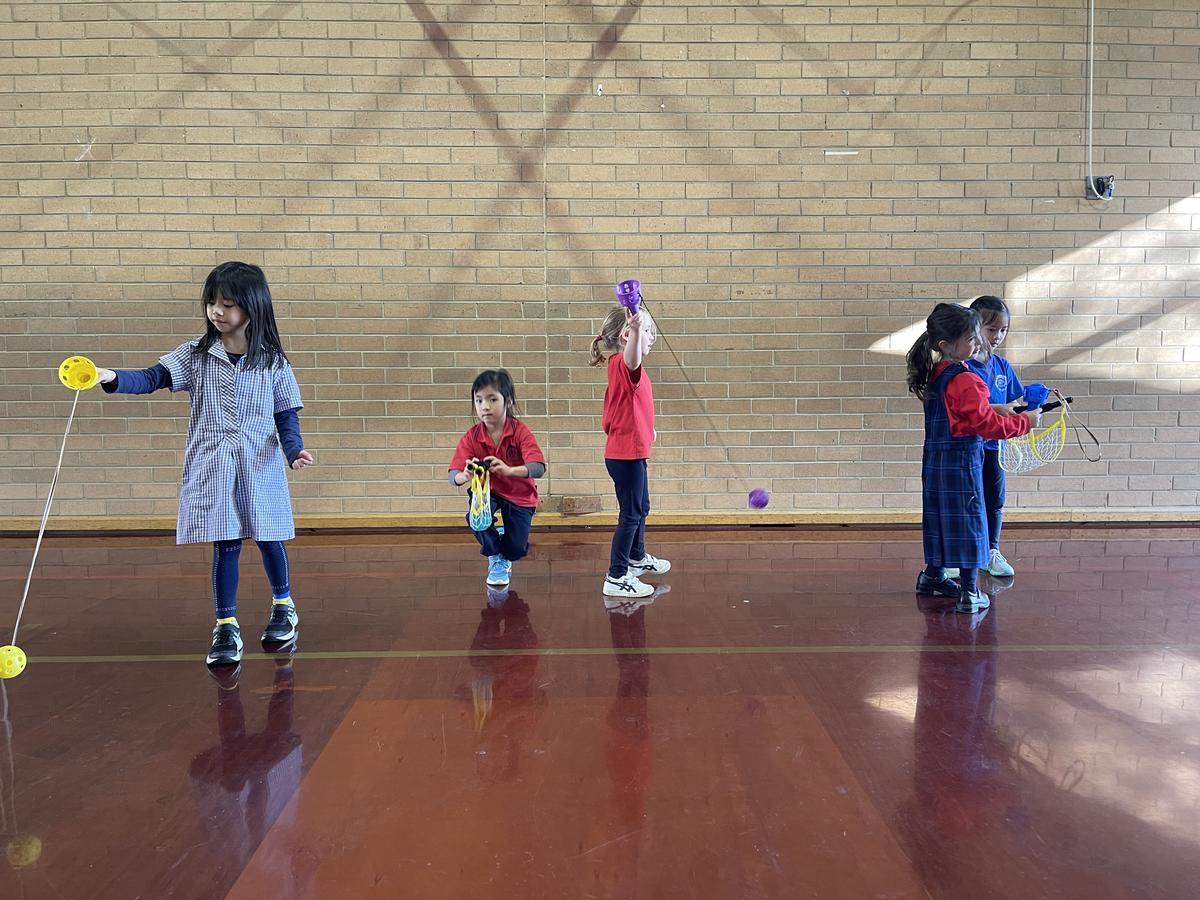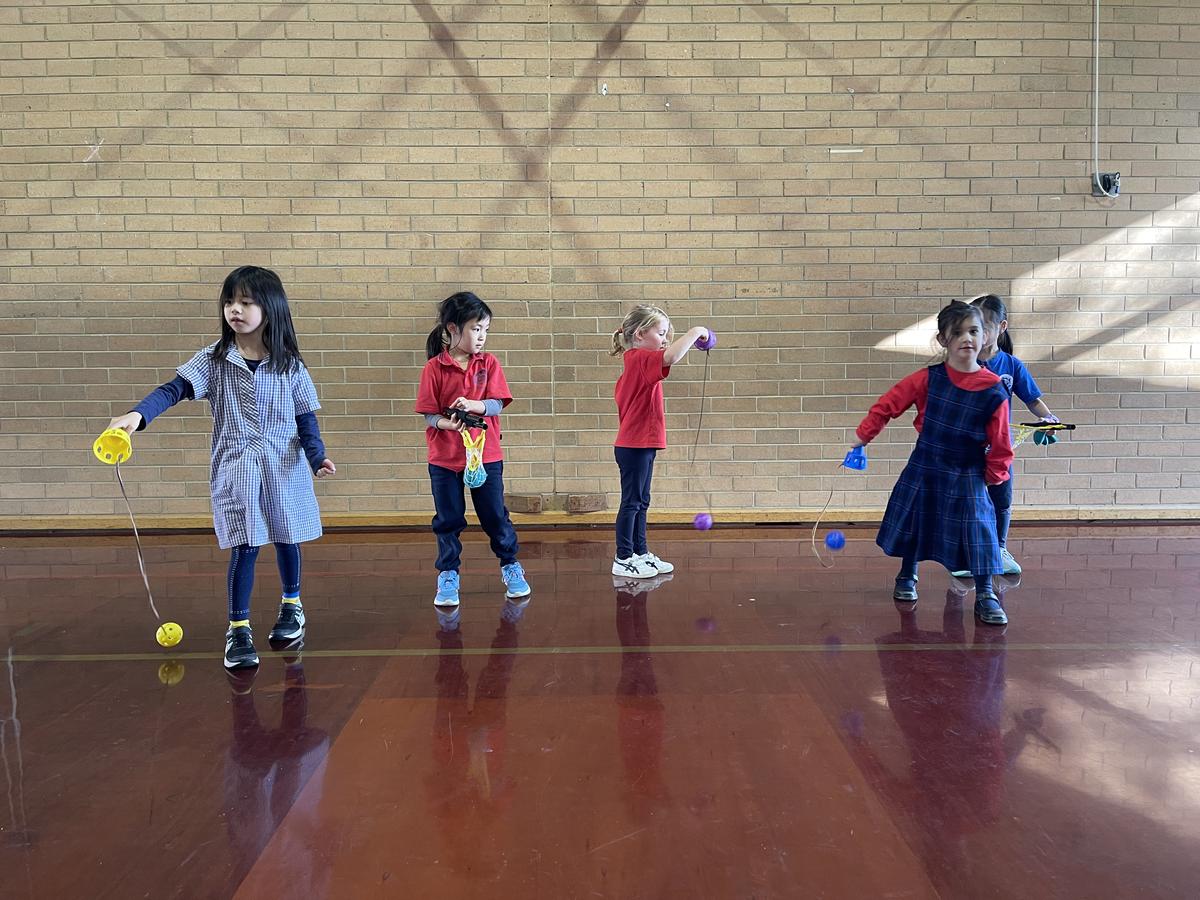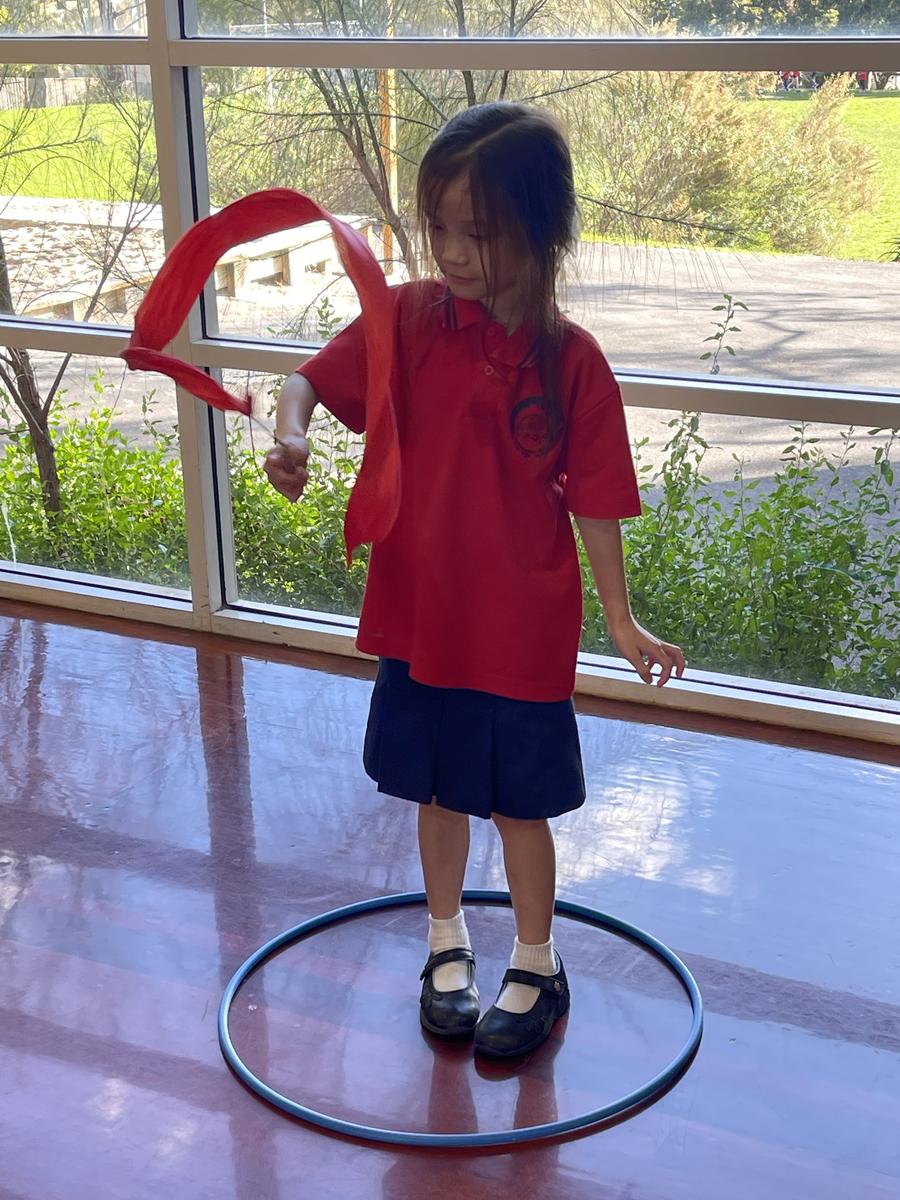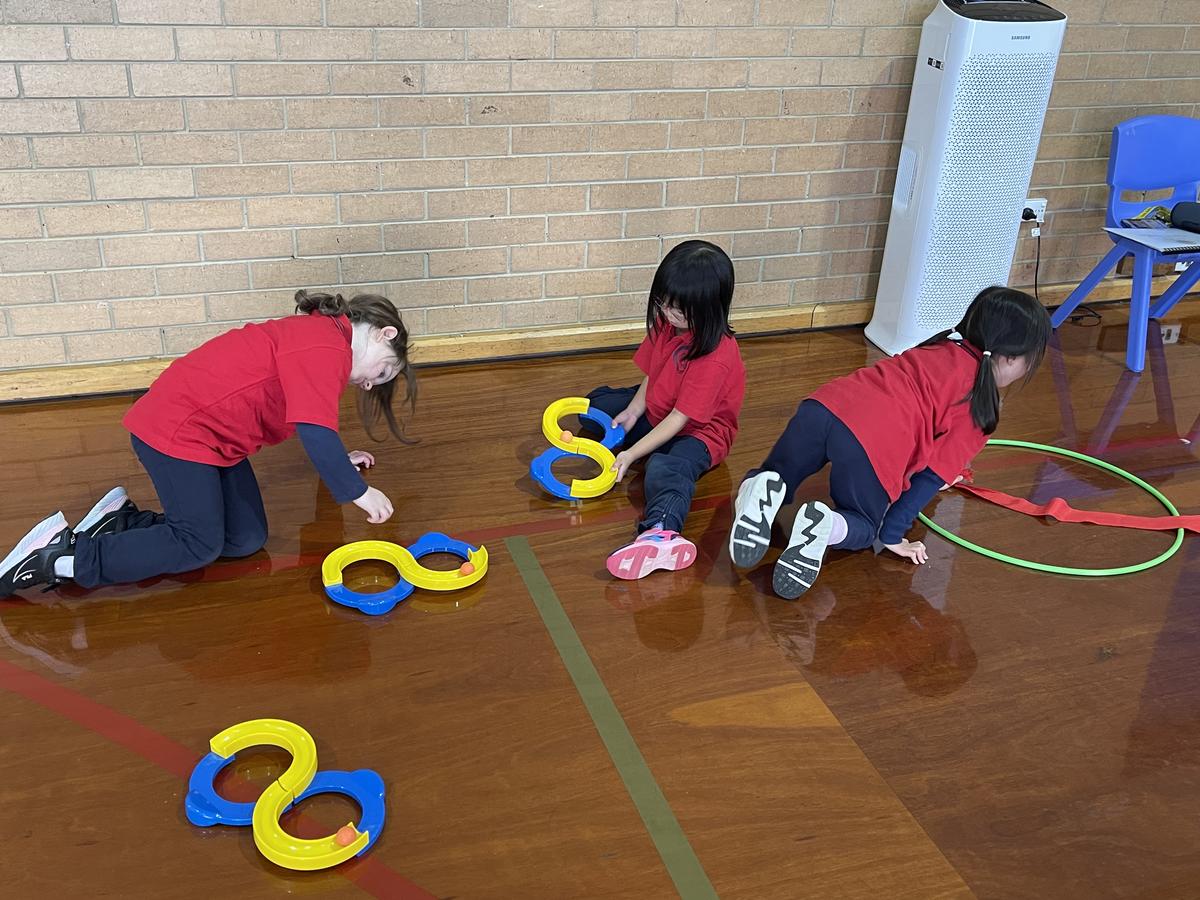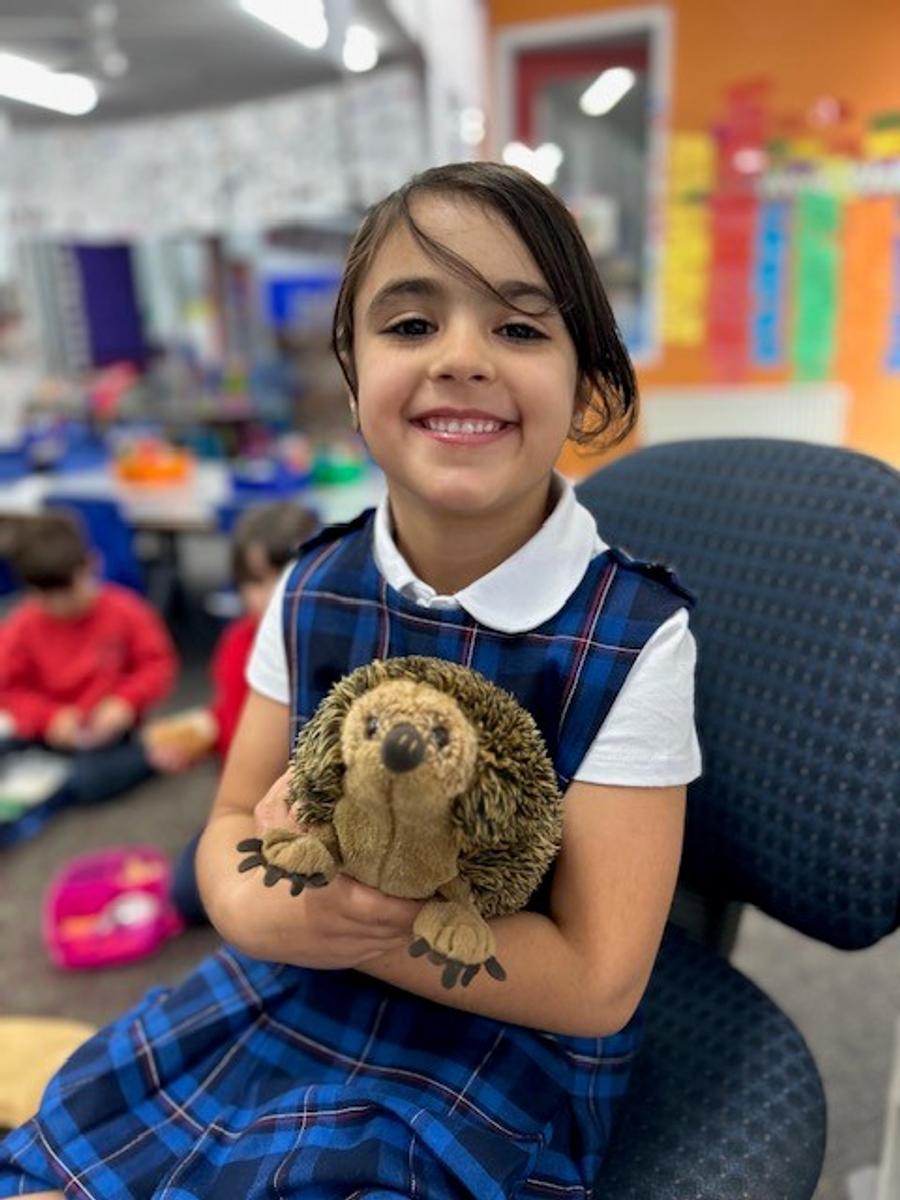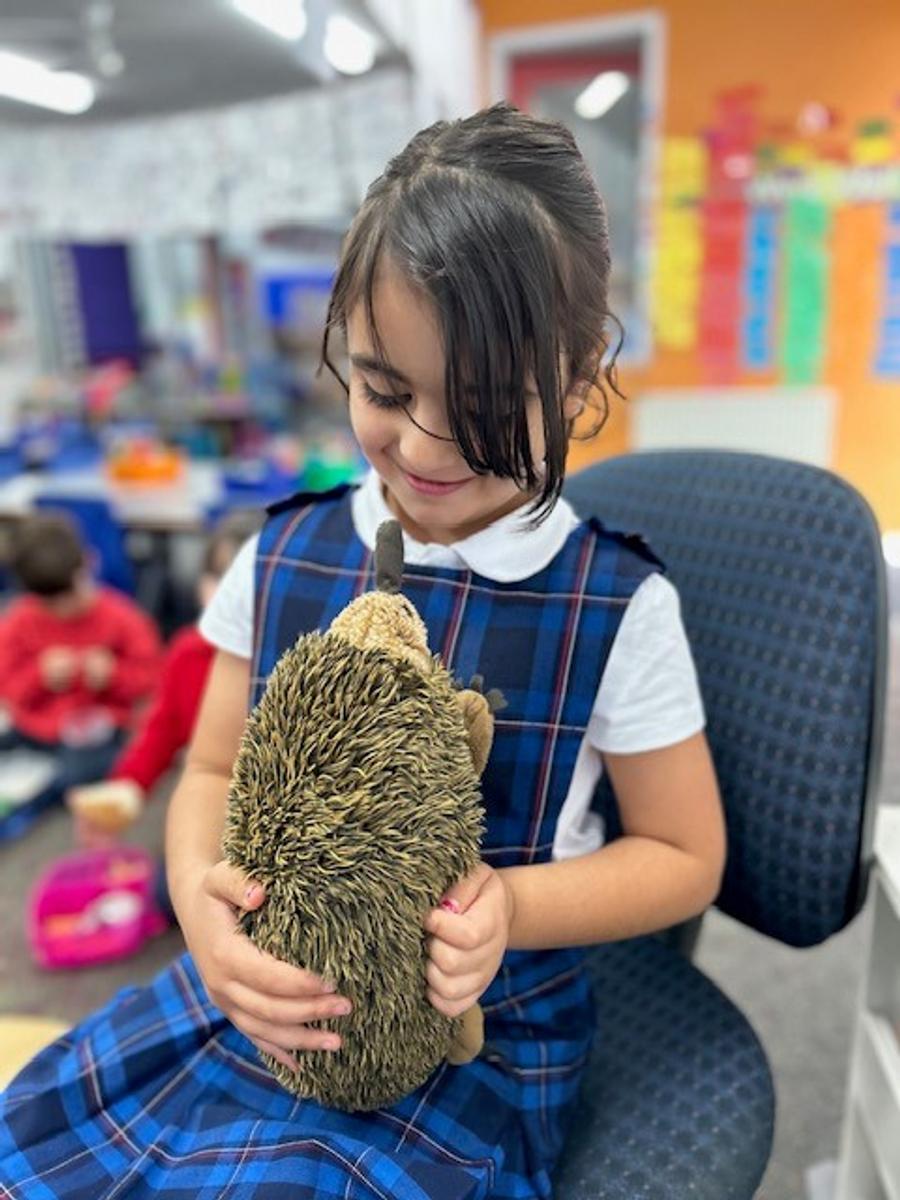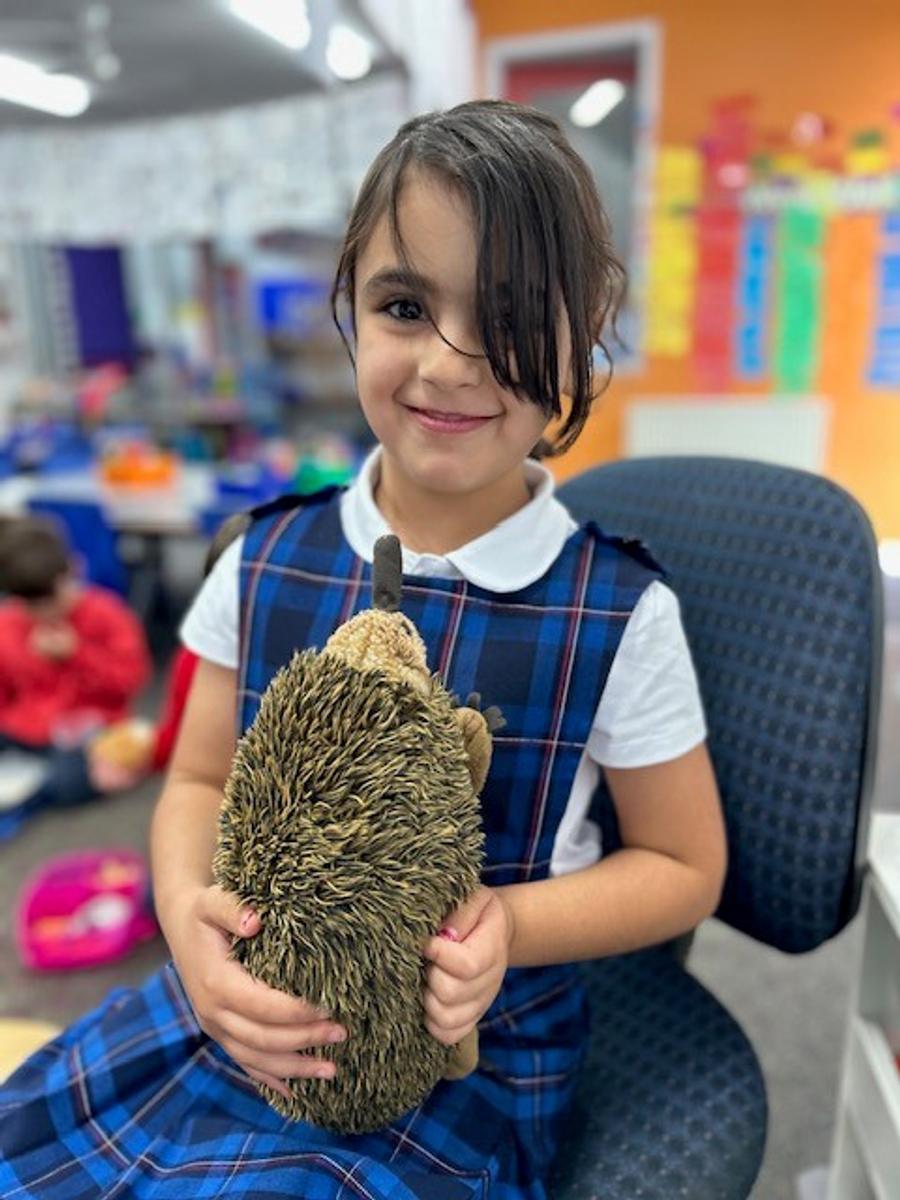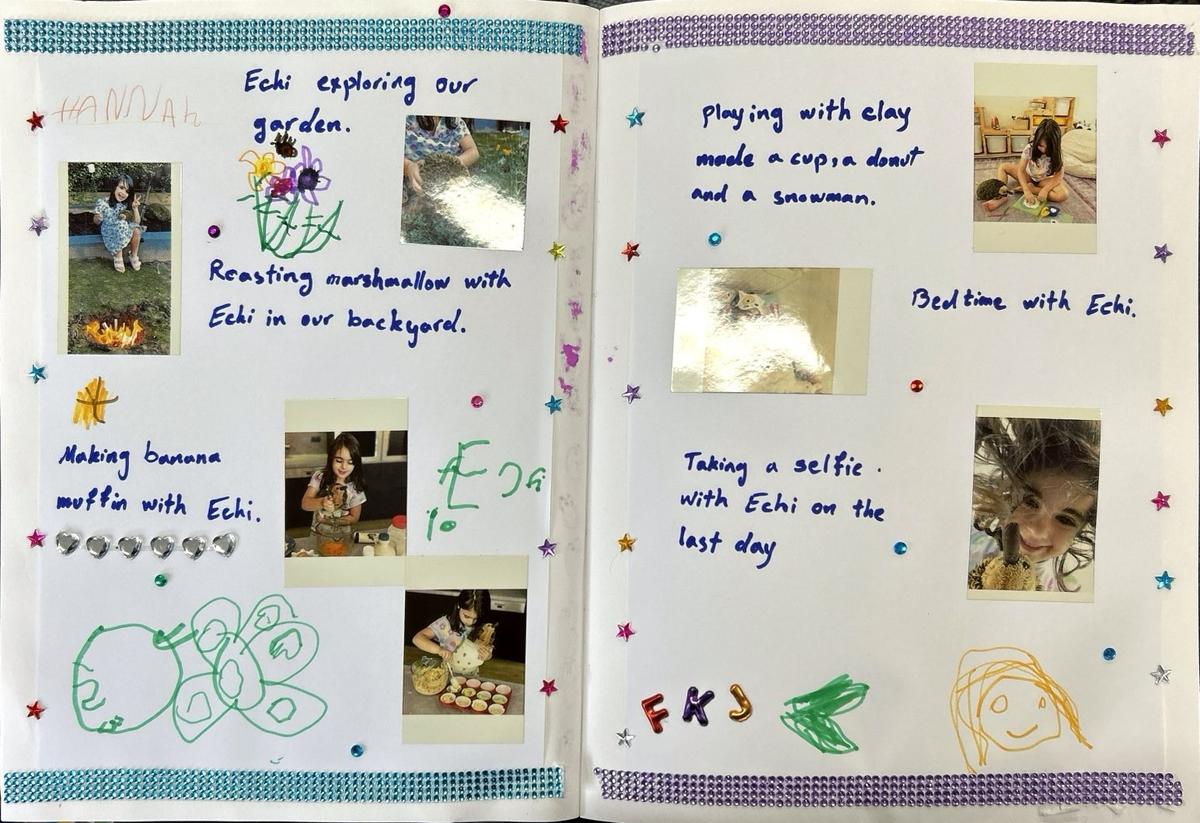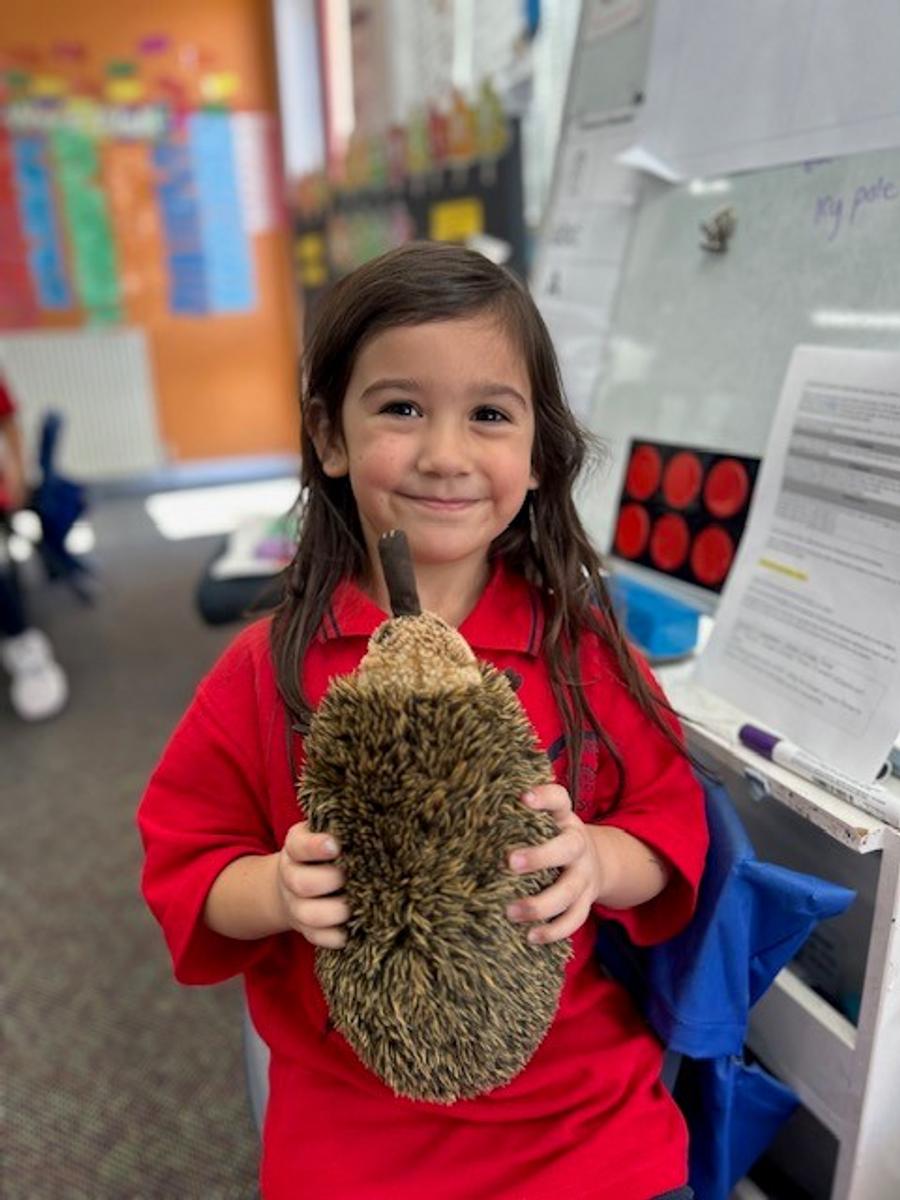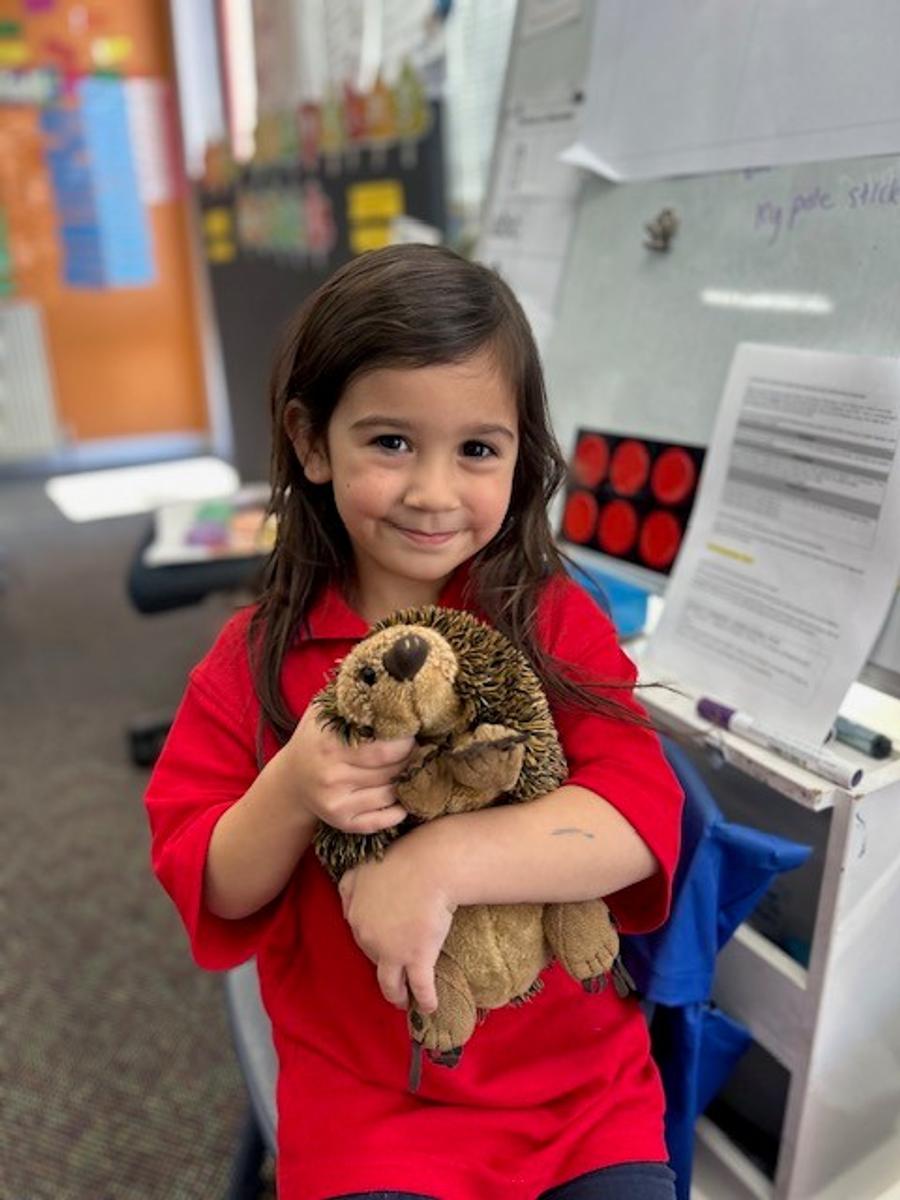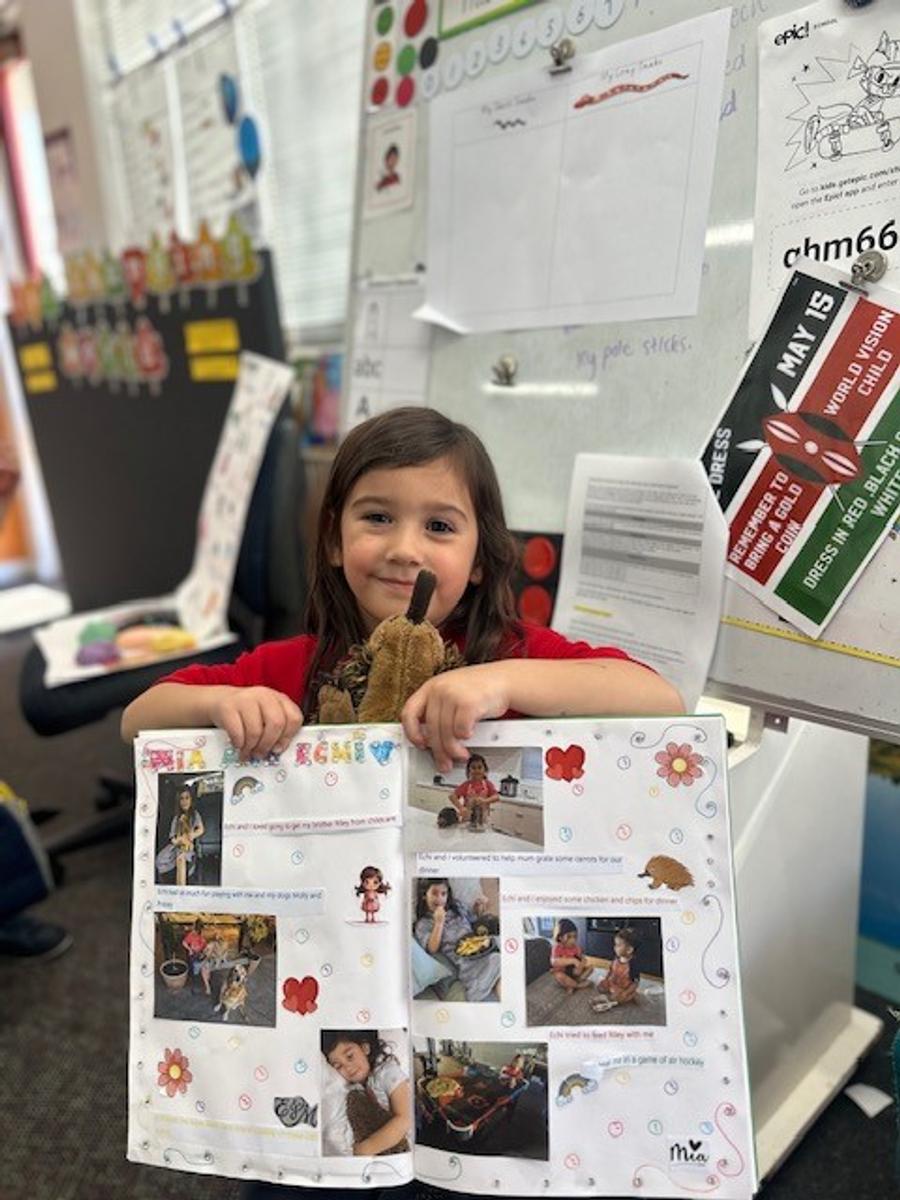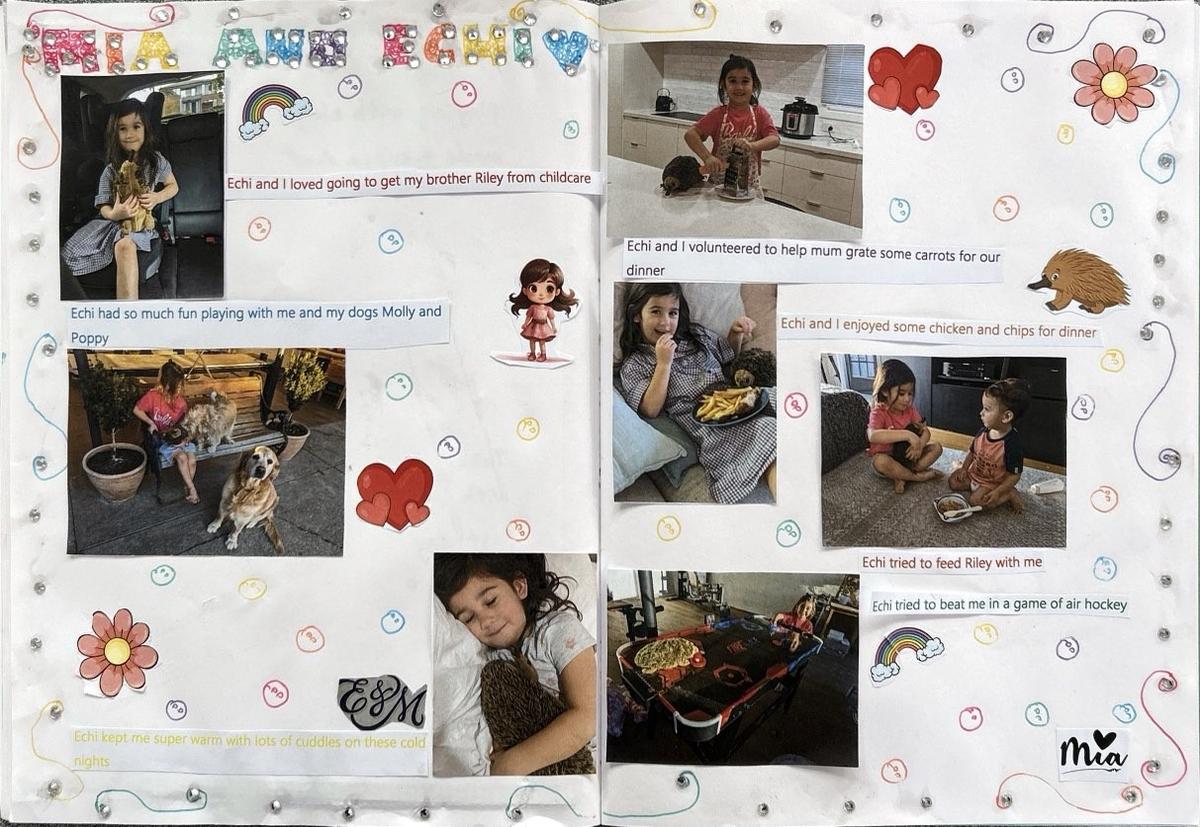Team Foundation News
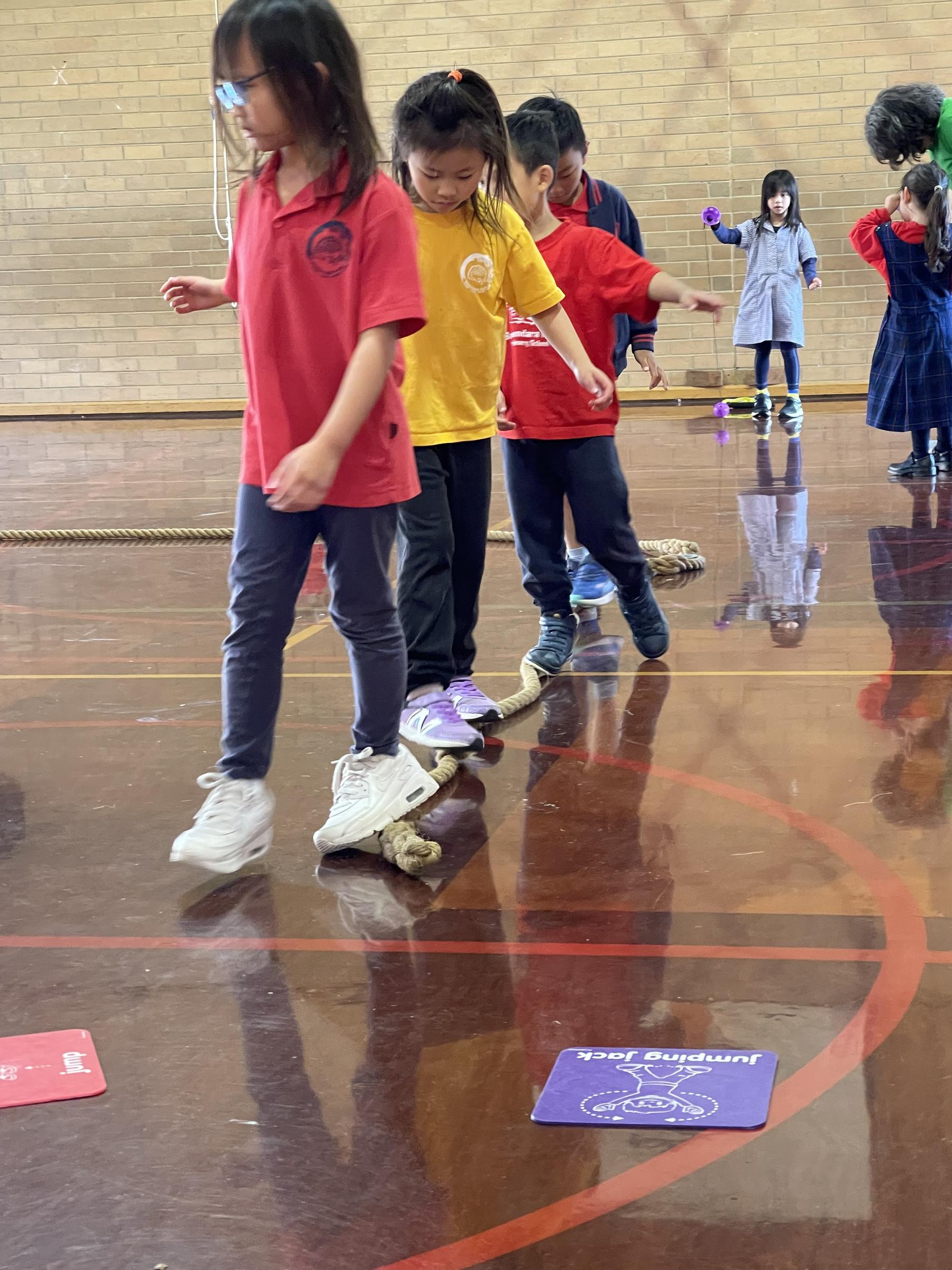
Perceptual Motor Program (P.M.P.)
In the Early Years of Primary education students experience a variety of programs to strengthen their bodies and cognitive development. One such program is called, The Perceptual Motor Program (PMP). The aim of this physical movement class is to improve student's fitness, balance, hand-eye coordination, eye tracking, gross and fine motor skills, memory and self-confidence. The program also seeks to build an understanding of spatial concepts such as in, on, under, over, through, behind, in front of, and between.
What are gross and fine motor skills?
Gross motor skills involve the use of large muscles in our bodies such as our torso, arms, and legs. Students use gross motor skills at school when doing everyday activities such as running, skipping, climbing, and jumping. Strong gross motor skills are critical for the healthy development of children—physically, emotionally, and cognitively—and can build their self-confidence. Fine motor skills involve the group of skills involved in the ability to manipulate smaller objects with the hands and fingers, for example, grasping, holding and pinching. Fine motor skills use the smaller muscles of the hands, commonly in activities like using pencils, scissors, construction with Lego or Duplo, doing up buttons and opening lunch boxes.
Why is it so important to have strong eye tracking capabilities?
Eye tracking, also referred to as visual tracking, is the ability of one's eyes to “track” from left to right in an efficient manner, and “follow” the movement of objects. Eye movements should be smooth and consistent, with the ability to be completed quickly. Eye tracking is important when an individual reads words in a book. If a student has poor eye tracking abilities, problems can arise such as eye fatigue, word omissions, reversals, losing one's place while reading and most importantly these difficulties can negatively impact reading comprehension.
What other skills can students work on while taking part in the PMP program?
- Auditory- developing the ability to listen to auditory information, processing or making sense of it. Some activities involve the child listening to instructions from the parent/teacher helper and then applying them.
- Visual- developing the ability to look at visual information, processing and making sense of it and using it appropriately.
- Social- learning social skills such as waiting for their turn, sharing and communicating with their peers.
- Language- understanding the basic concepts of language in comprehensive ways. For example words such as 'up' and 'down'. Through PMP activities children will develop an understanding of ways they can use specific language in certain settings.
- Memory- developing short term sequential memory, for example activities requiring the child to listen and memorise the auditory sequence of colour markers to jump on.
Foundation students will begin taking part in one weekly PMP session in Term 2. PMP sessions run every Wednesday afternoon in the Boroondara Park Primary school Hall. In order to run this program effectively we need the support of parent helpers. A big thank you goes out to all the parents who have so far volunteered their time and energy to this valuable program.
If you are able to assist with the PMP program in Term 2, please insert your name into the highlighted yellow squares in the PMP parent helpers roster (link below). All parent helpers will need to have a current Working with Children's Check and sign into the school office before each session.
PMP Parent Helpers Roster Term 2, 2024
Echi Echidna Term 2
Week 2 Echi Adventures - Hannah
In Week 2 Hannah took Echi home and had so many exciting adventures together! In the first few days, Hannah treated Echi to a camp fire in her backyard and roasted delicious marshmallows on the hot embers. Yum! They also made scrumptious banana muffins. They look delicious! Afterward Hannah showed Echi how he can be creative with clay and showed him how to make a clay cup, donut and a snowman! Aren't you clever! Well done Hannah for sharing these lovely adventures with Echi! We all enjoyed listening to you share the fun times that you had with our furry friend. Great job!
Week 3 Echi Adventures - Mia
In the third week of Term 2, Mia took Echi home. Mia and Echi had so much fun together! Firstly they travelled in the car to pick up Mia's little brother from childcare and then played with Mia's two dogs, Molly and Poppy. Mia made sure that Echi played nicely with her dogs and didn't hurt them with his spikes! Good job Mia! Next she showed Echi how to carefully grate carrot in the kitchen and also shared her chicken and chip dinner with him. Echi even helped Mia to feed her little brother! Afterwards Mia showed Echi how to play air hockey! I wonder who won! Thank you Mia for sharing so many wonderful adventures with Echi! We loved hearing about all the fun things you did with him! Super effort!
Thank you to Hannah and Mia's parents for their support in organising these adventures! We look forward to hearing more adventures soon!
